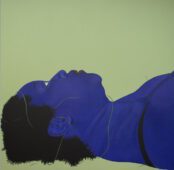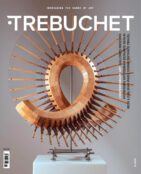Warrington’s Parr Hall saw the Stone Roses‘ comeback gig just last Wednesday, playing a free concert for fans who could produce some physical merchandise-based evidence of their devotion. Rock and roll insurgence and resurgence are cyclical. 90s adverts for jeans slung Percy Sledge and Marvin Gaye onto the top of the singles charts some forty-plus years after their first release; Lana del Rey peddles wistful Americana-lite that sounds much like a Tammy Wynette 45 played at 33; the voracious reptilian urge of pop music to feast on its own flesh is as established as the tides.
We should rail and gnash and spit at this turgid recycling of creativity, reject it as being unworthy of our interest. The inconvenient reality though, is that it’s what we want, what we lap up. What we, crucially, buy. Or someone does, anyway. The three Stone Roses Manchester gigs scheduled this summer were the fastest-selling tickets in UK rock history. Forget Jimi at the Isle of Wight or Zep or the Beatles or Take That: the Stone Roses have the record now. And nor is that an isolated phenomenon – amongst Trebuchet’s most-viewed items in the last week is the announcement that Pop Will Eat Itself, Jesus Jones and The Wonderstuff will be on tour in the coming months.
bewildered by the metastasizing of musical product in the digital age
Musical nostalgia is the empty-calories comfort food for those bewildered by the metastasizing of musical product in the digital age. A typical day in the Trebuchet editors’ inbox sees more home-recorded mixtapes, mashups and dj sets than can be listened to in 24 hours, and the knock-on effect of all this creative incontinence is a growing section of public who cling to the familiarity of simpler times to counter the endless broadband flow of new, and frequently drivel, content.
And Google are doing it too. Google of all people, whose withered and dessicated souls long, long ago lost the Freewheelin’ Franklyn mojo of the ‘don’t be evil’ ethos that propelled them to their current financial and informational pinnacle. They too took a retrograde step, in keeping with the reflexive past-worshipping theme of the week, and celebrated the 50th anniversary of Robert Moog’s cabinet synthesiser.

How we loved it, and spewed tweetsized paroxysms of joy and rapture at this playable miniature Moog synthesiser which graced the frontispiece of Google’s all-seeing, all-knowing search facility. You could press the keys and twiddle the knobs and wurgle the pitchbend wheel. Actually, you couldn’t really wurgle the pitchbend wheel very well, what with there only being one cursor arrow, but the idea was there. Space-like sounds of pure science swooshing around the offices and homes of millions of would-be Steve Reichs.
a loose-sphinctered dysentery of projectile datarrohea
Dear god, if Google’s only lasting legacy, beyond digitising the Yellow Pages, is to have demoralised a generation of nascent Bandcampers, that will be service enough to humanity. For surely, even in this era where sharing one’s clomping progress through the digital arts is a loose-sphinctered dysentery of projectile datarrohea, surely there will have been a small percentage who noticed that their efforts on Google’s Moog simulator came up with nothing that displayed even the slightest semblance to Giorgio Moroder’s soundbeds for Donna Summer.
Or that in fact, the musical vision needed to coax beauty or expression out of such crude machinery; the dogged drive to splice magnetic tape loops, build relay switches to mount onto kickdrums; to sequence electronic beats by ear, not by graphic user interface; all those challenges and impediments faced by the decades of musicians who preceded the laptop generation were a precious and necessary limiting factor in the process – ensuring that musicmaking belonged solely to the disciplined and the visionary.
And if Google’s Moog simulator bashes that intimidating, demoralising fact into even one bedroom dilettante beats-programmer, and convinces that talentless fantasist to abandon all delusions of musical self-worth, it will have contributed more to art and culture and civilisation than Bandcamp, Pro Logic, Ableton and Propellerhead Reason combined.
Dinowalrus slot neatly into this circlejerk of comforting musical cannibalism. Perhaps in this case it’s a Brooklyn thing. In a town whose hipness quotient has been on the skids since the Beckhams named their kid after it, and which is fast losing the edgy artistic community it was once famous for to the nearby Newark, it appears that the critical sharpness of locality has been diluted and blunted by the inevitable gentrification that follows the avant-garde. Beach House are also from Brooklyn, and no-one could claim that their abridged and edited, Cliff’s Notes version of The Cocteau Twins‘ musical cornucopia has anything revolutionary to it.
dry humps the zeitgeist
For Dinowalrus, the motherlode is the Madchester movement of the late eighties – The Happy Mondays and Stone Roses in particular. It’s interesting, and certainly dry humps the zeitgeist, but as is often the case, every step further from the Platonic ideal bleaches just a little more colour out of the image.
The Stone Roses managed to amalgamate the reeling post-Vietnam intricacy of psych-rock melodies, Byrds/Kinks guitar attack and busy house beats into a coherent whole, largely through the muscular rhythmic telepathy of their bassist and drummer. How does a band pull together a heavily-reverbed, chord-heavy lead guitar and echoey, breathy vocal into a tight, anthemic, danceable record? With a solid rhythm section. Attempt to recreate it at your peril, because unless those bassist and drummer are happy to spend more time looking at each other than at the audience, you can forget it right there.
Dinowalrus claim their experiment is to create a hookier, more accessible version of krautrock, psychedelia, house music and post-punk. At least, that’s what they’re hoping listeners on this side of the Atlantic will swallow as their motives. In truth, where their press release states that they are hoping to bring the vibes of 80s acid house to the USA, they’re being a bit more honest: ‘reopening a strange, fun and vibrant chapter in music history that never quite reached American shores.’
a history project, dumbed-down for YouTube attention spans
Opening track ‘The Gift Shop’ certainly does bring a hooky and danceable ambience to the fore, with the only downside being that the hook in question is lifted almost directly from The Happy Mondays’ ‘Kinky Afro’. And it continues over the course of the album. The stated intent to condense something dancey and vocal out of their influences at times feels as if Dinowalrus have created a history project, dumbed-down for YouTube attention spans, with all the challenging middle-eights and solos filleted out and replaced with chirpy motifs that nag at the consciousness with an insistent ‘Remember me?’.
More often than not, those hooks come from Primal Scream, The Happy Mondays or the Stone Roses, and any pretence at post-punk or psychedelia come through the filter of that late 80s guitar/dance approach. Quoting secondary sources is the kindest way to put it. And not always attributed. ‘Phone Home from the Edge’ owes more to Big Country than any Brooklyn hipsters are likely to admit to – the saw-bright guitar might have come straight off ‘One Great Thing’. Equally, ‘What Now’ might as well be an out-take from Zooropa.
‘Beth Steel’, the current single, is again a StoneMondaysScream effort, but with a yawning landfill indie Ride/Oasis chunder chorus that comes from an entirely different period of Manchester guitar band history, and one without anything of the pedigree of those acid-inflected baggy acts. It’s a queasy moment for the music nerd to hear a near-replica guitar hook of ‘She Bangs the Drum’ sitting alongside Charlatans organ rills, then suddenly morph into big Oasis rugby chants. Historically feasible, it could be argued, if Noel Gallaher’s days as a roadie count in the continuum, but queasy nonetheless for those with any attachment to the originals.
The album’s concept grows thin, then becomes irritating
‘RICO’ sounds more like New Order crossed with a sub-Lydon distressed vocal, but again, it still sounds too much like something else to ever sound like itself. It is competent, certainly. The tune is the product of quality musicianship and sometimes outshines its sources, but why so very, very referential? The album’s concept grows thin, then becomes irritating – especially when the extended saxophone outro of ‘RICO’, the inspired guitar musings of ‘Twenty Seven Club’ (a Cobain reference?), or the intricate arrangement of ‘Burner’ display that the band have talent if not originality.
Between the recognisable, barely modified hooks of late 80s dance pop, there are flashes of creativity from Dinowalrus, and if the band were not at such pains to hide and overshadow them with the crowdpleasing sugar of their source material, they would be interesting of themselves. Alas, they are buried deeply, the prominence always given to the nostalgia tripping of recognisable melodic phrases and stylistic tropes from a lifestyle movement some thirty years old.
‘Because it’s new’ is in this instance, just not a compelling enough argument.
Their concept works – their repackaging of those stated elements into a listenable, danceable, unchallenging, iPod-friendly rock-lite is a triumph of doing what it says on the tin, but surely we have to take issue with the concept itself. Best Behavior is fine if you’re not fussy, if you can hear the word ‘Supernova’ in a song (‘Radical Man’) without cringing, and you dislike surprise or challenge. But why you would choose it over The Stone Roses, Happy Mondays, Sonic Youth, Primal Scream or The Charlatans, which it strives to emulate, is anyone’s guess. ‘Because it’s new’ is in this instance, just not a compelling enough argument. The student-nostalgia, Bez-dancing, Mani-clanging, Liam-chanting bounce of ‘Riding Eazy’ is about the pick of the bunch.
Such flagrant feasting on obvious musical influences makes for a superficially pleasurable listening experience, but the aftertaste is a bit sickly. A touch akin to when one gorges, Caligula-like, on the suppurating rotted vital organs of a once-deified hero now fallen, then, sated, vomits the half-chewed corpseflesh back onto the platter, claiming the bile and stomach acids of one’s own digestion to be the critical fresh element marking the dish as a creation of originality. We’ve all done it, but it’s a cheap trick.
On Heist or Hit records, June 2nd

An observer first and foremost, Sean Keenan takes what he sees and forges words from the pictures. Media, critique, exuberant analysis and occasional remorse.






















